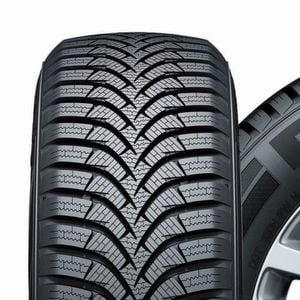Last Updated on 28.08.2024 by hrushetskyy
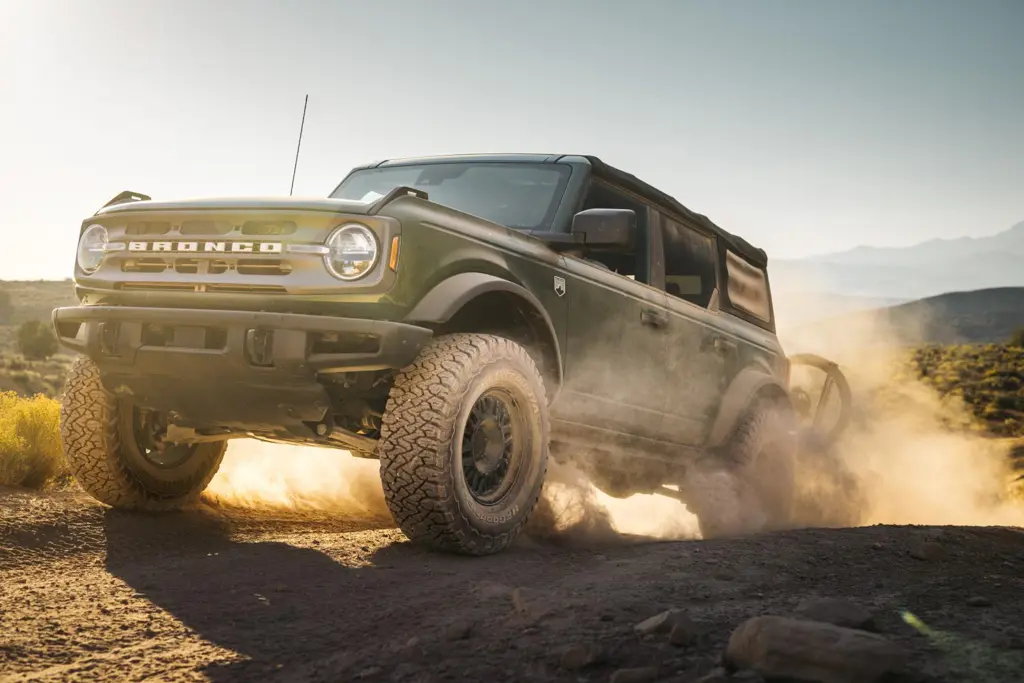
You’re in the market for some new tires, and you like the idea of driving off-road, so you’re considering all-terrain tires. If you’re unsure if they’re the right tires for you, read on, and we’ll explain the difference between all-terrain tires and other types of tires so you can make an informed choice.
In short, all-terrain (AT) tires are good for traction on all kinds of surfaces, including on and off-road. They combine the open-tread design of off-road tires with the good handling of street tires. It’s important to remember that this type of tire is all-purpose. So, it’s probably not the best option for people who only drive on highways and paved roads or who like serious off-roading.
Features of all-terrain tires
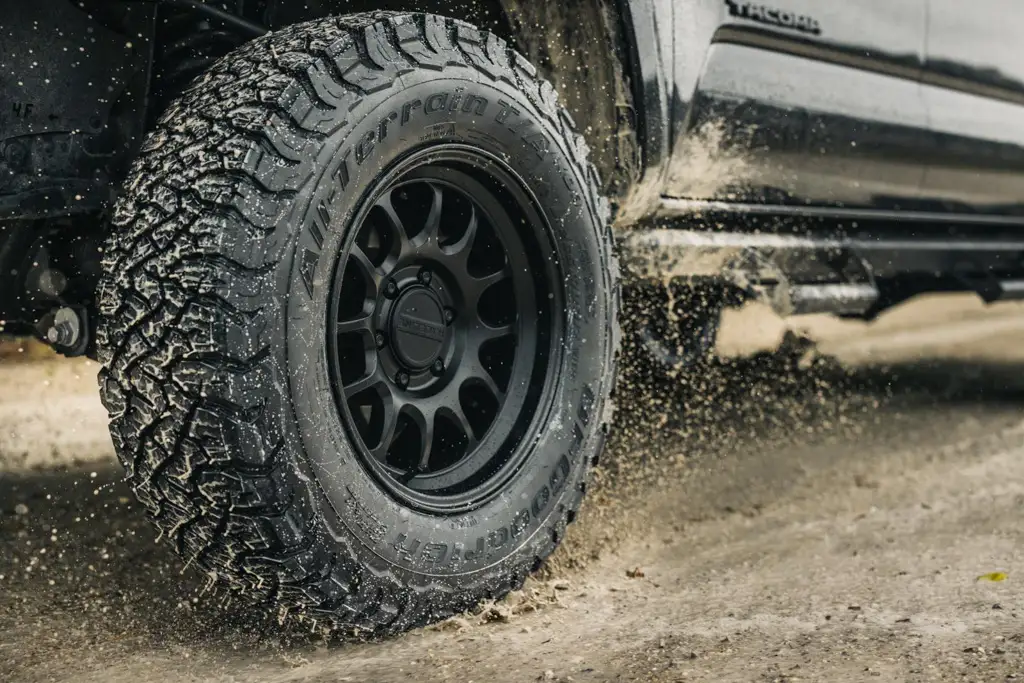
Understanding the key features of the all-terrain tire, as well as its advantages and disadvantages, will help you make your decision.
Pros
- Open-tread design
This design improves the traction of the tires on off-road surfaces. The interlocking tread elements provide a good grip on rocks and mud, while still giving adequate handling on paved roads. - Reinforced sidewalls
Reinforced sidewalls are present on some models of all-terrain tires, providing more load-carrying capacity. These are usually more aggressive tires made for heavier trucks and more off-road use. Campers also often use reinforced all-terrain tires, as these vehicles have a greater load to carry and, therefore, use rugged terrain tires. - All-year operability
Many all-terrain tires can be used year-round, as they have the three-peak mountain snowflake symbol (3PMSF mark), making them legal for use in winter weather conditions. However, this is not mandatory, so it’s important to check for this mark when buying new tires. Tires with this marking will provide traction when the temperature drops below zero and on snow-covered surfaces and allow you to use these tires year-round, so you don’t have to change from used summer tires to winter tires. However, winter tires still have an advantage over all-terrain due to their tread pattern and rubber compounds.
Cons
- Noise
These tires are noisier than regular all-season tires due to their tread design. Mud, off-road, and all-terrain tires have block tread patterns that make a louder noise. Such tires usually have symmetrical grooves, while best touring tires have many different types of patterns. This makes a different sound when air passes through them, but mostly, the air flows cancel each other, creating less noise. - Lower fuel efficiency
The all-terrain tire ranks in the middle in terms of fuel efficiency, as regular street tires use less fuel, and off-road tires use much more. Mechanical friction, wind, and rolling resistance, and tread patterns all influence fuel economy. Rolling resistance could be eliminated with stiffer sidewalls and almost no tread, but the latter would also eliminate the traction.
Vehicles that use all-terrain tires
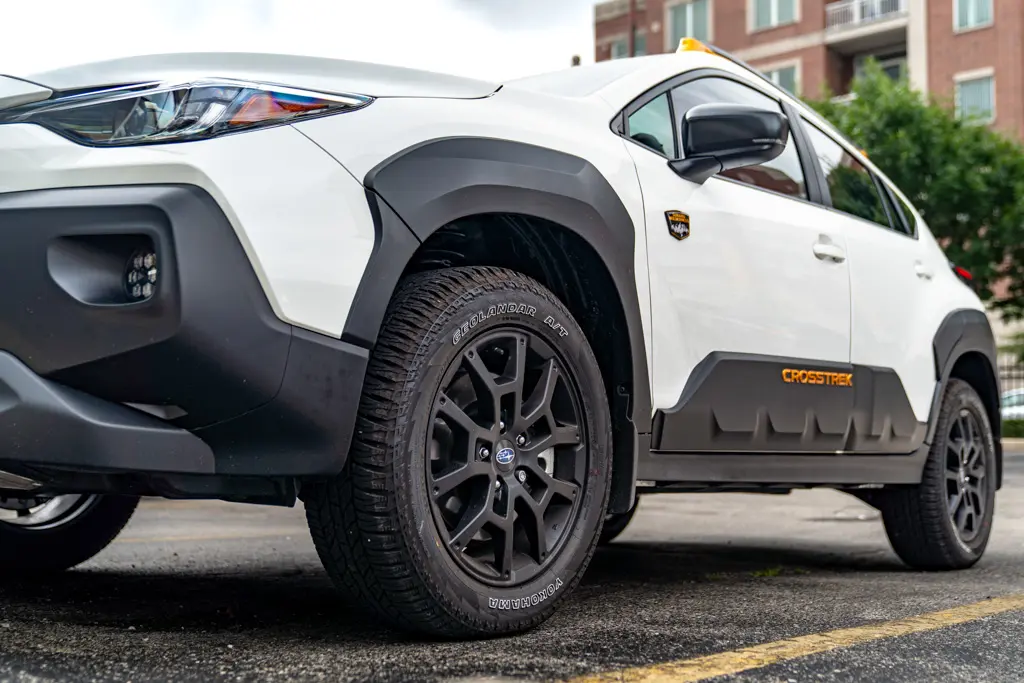
There are certain types of vehicles that can benefit from all-terrain tires:
- Light trucks
Light trucks often run on both on- and off-road surfaces and frequently carry heavy loads. While regular used LT tires will handle the load, all-terrain tires are a smart choice for the best on-/off-road performance. A light truck’s average load capacity is up to 4,000 pounds. - Pickup trucks
Pickups also go on- and off-road, although these carry a larger load of up to around 6,000 pounds. Such vehicles are often used to transport goods or to travel, and both purposes may include driving over mud or rocks for some time. - SUVs
SUVs can also benefit from using all-terrain tires, as there are many models of tires with different ply ratings. This means they have different load indexes. SUVs are in the same load capacity class as pickup trucks, so many choices exist. However, you should carefully consider the type of driving you’ll be doing before choosing between all-terrain, SUV, and street tires. - Campers
Campers need all-terrain tires or off-road tires of bigger sizes, up to 37 inches. Stiffer sidewalls and rather aggressive treads are great in this case because they have to carry not only the vehicle itself but also a trailer, and they need to handle mud, rock, and often snow. - 4-wheel drive cars
Regular vehicles with 4-wheel drive capacity may also benefit from all-terrains if you drive off-road a lot. It’s important to remember that the tire has to match or beat the speed rate and load index specified by the automaker. The size also has to match the wheel and the aspect ratio. This means that to fit all-terrain tires on a regular 4-wheel drive car, you may need to buy different wheels so the tire’s height doesn’t interfere with the car’s performance.
Our all-terrain tire recommendations
Here are our favorite all-terrain tires.
BFGoodrich All-Terrain T/A KO2
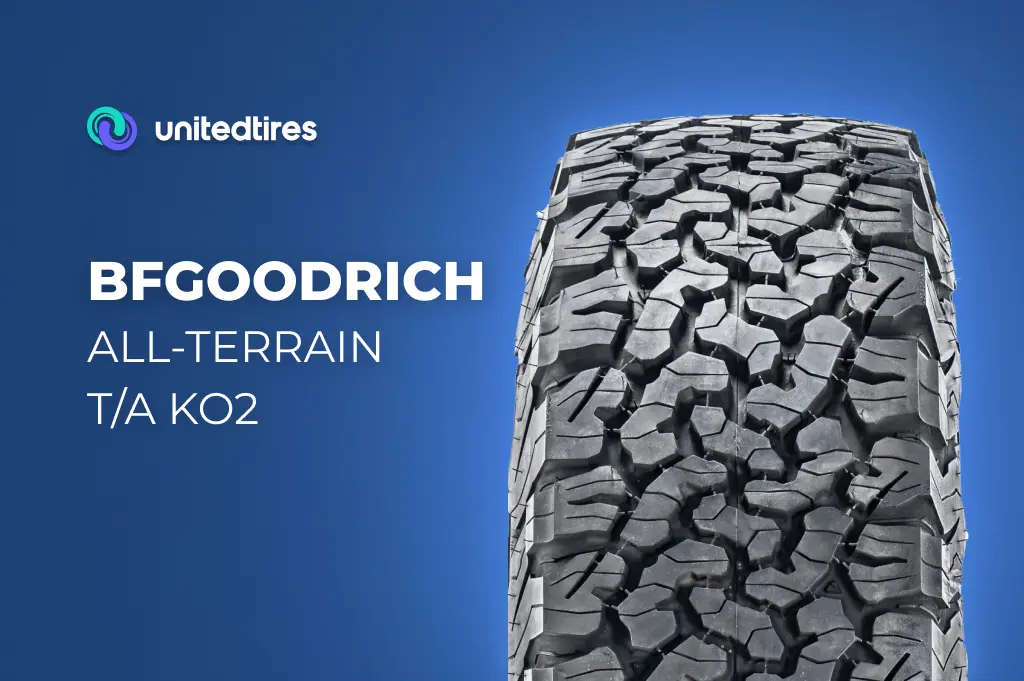
For tire lovers, the BFGoodrich AT tire is iconic – as this company created the very first AT tires. They benefit from even tougher sidewalls than their predecessors and their aggressive tread and shoulder design will keep you safe on mud, rocks, and even snow. They are also rated for snow driving, sporting the 3PMSF mark. This means they allow you to take your SUV or light truck off-road in all weather conditions.
- Mileage warranty: 50,000 miles
- Snow rating: 3PMSF – Severe snow conditions
Toyo Open Country A/T 3
Toyo’s AT tires give a balanced and comfortable performance on roads and rougher terrain. They particularly focus on providing safe and stable performance in wet weather, so are a great choice if you live somewhere with high rainfall. They also offer great durability and long-lasting treads, with one of the longest treadwear warranties on our list, at 65,000 miles.
- Mileage warranty: 65,000 miles
- Snow rating: 3PMSF – Severe snow conditions
Falken Wildpeak A/T Trail
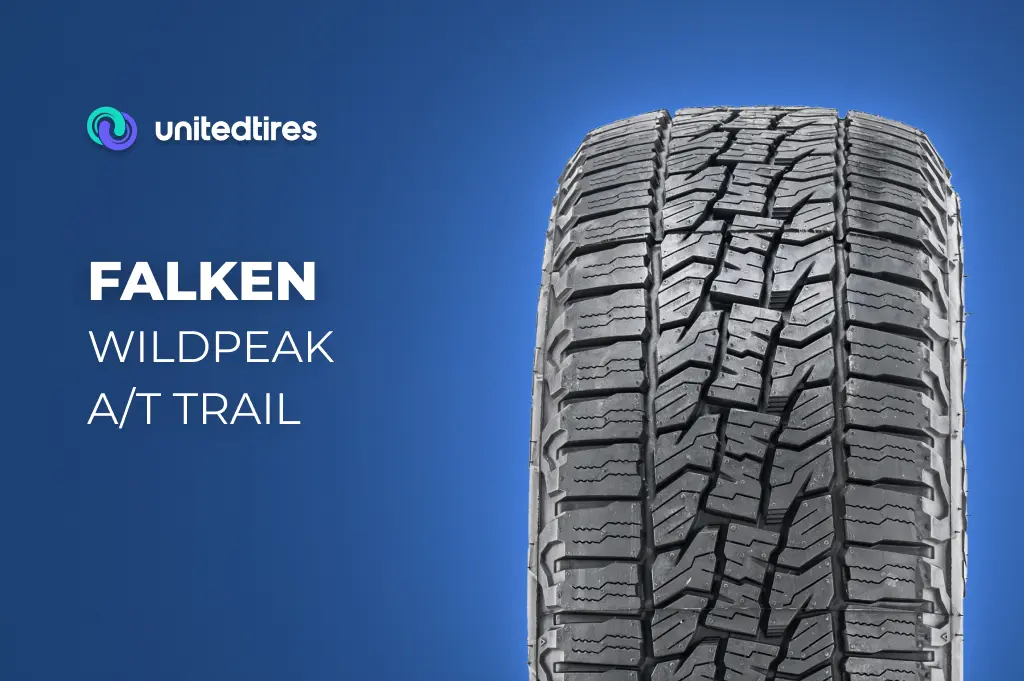
This rugged tire from Falken is designed to provide superior performance off-road while keeping you comfortable on the highway. Its tough upper sidewall makes it ideal for rough terrain, and it has a tread designed to keep you comfortable both off and on the road. With a 65,000-mile warranty, this tire is built to last. It also offers the 3PMSF snow rating, making it a great choice for driving in wintery weather.
- Mileage warranty: 65,000 miles
- Snow rating: 3PMSF – Severe snow conditions
Mickey Thompson Baja Boss A/T
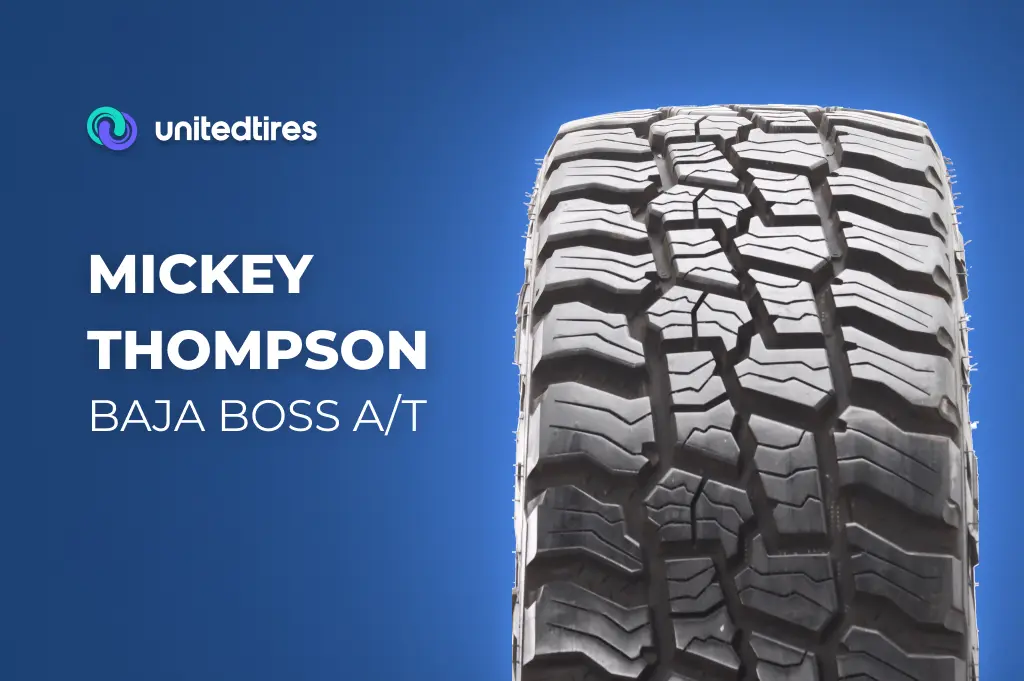
The Baja Boss tire from Mickey Thompson offers a great balance of on and off-road performance thanks to its proprietary tread design and compound. With deeper Sidebiters than previous models, it has increased traction on rough surfaces, including rocks and mud. It also has great puncture resistance thanks to tougher cords. But it doesn’t forget about highway conditions, giving you less road noise and a smooth ride when you’re not off-roading.
- Mileage warranty: 50,000 miles (light truck) or 60,000 miles (SUV )
- Snow rating: 3PMSF – Severe snow conditions
Yokohama Geolandar G015
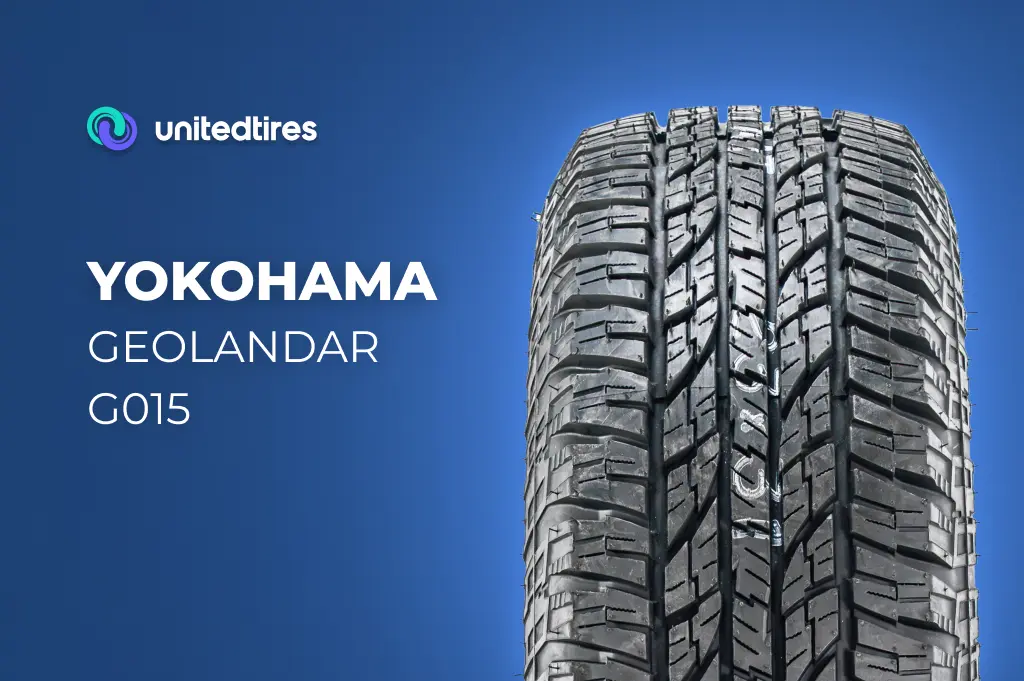
Yokohama is also known for making great AT tires, and their G015 is designed for SUVs and light trucks, ensuring they can handle harsh driving conditions. They use a special ‘Enduro’ compound, which keeps the tire flexible, giving it great traction while still providing long-lasting endurance. The tread has been designed to combine quiet and comfortable on-road driving while giving superior performance off-road. Their Endurocore construction also allows you to carry heavy loads safely.
- Mileage warranty: 60,000 miles
- Snow rating: 3PMSF – Severe snow conditions
All-terrain vs. other types of tires
Now you know about all-terrain tires, how do they compare to some of the other most popular types of tires available today?
All-terrain vs. highway all-season
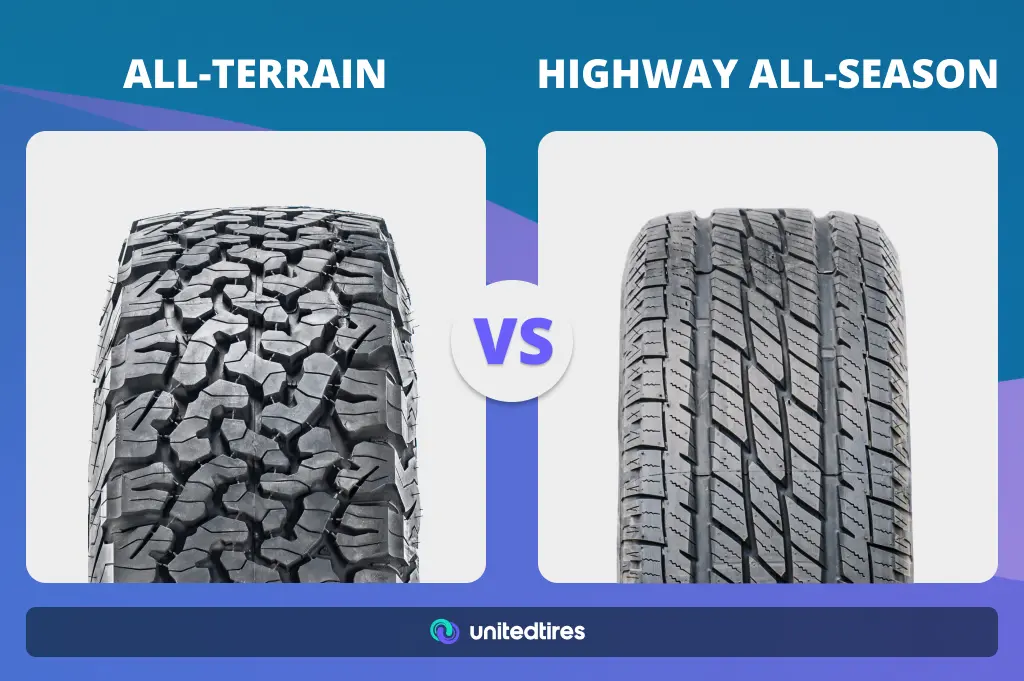
As you might guess, all-terrain tires outperform all-season when driving off-road. However, on streets and highways, all-season tires provide more comfort, including driving on highways and country roads, concrete and patched asphalt.
All-terrain tires
When compared to all-season tires AT tires have adequate performance with a bit more noise. They are also slightly less responsive when turning and braking. When it comes to minor sharp impacts, AT tires are suppeler. However, on a surface with continuous bumps and multiple impacts, AT tires start to jitter more than well-controlled highway all-season tires.
All-season tires
Compared to their AT counterparts, all-season tires are quieter, deal with bumps well, and provide more responsive handling on turns and when braking. They provide a better grip on dry paved roads thanks to their tread patterns and rubber compounds. On wet surfaces, there’s a little difference between the tires, with all-season tires providing better handling on straight, wet surfaces.
All-terrain vs. winter rated vs. winter tires
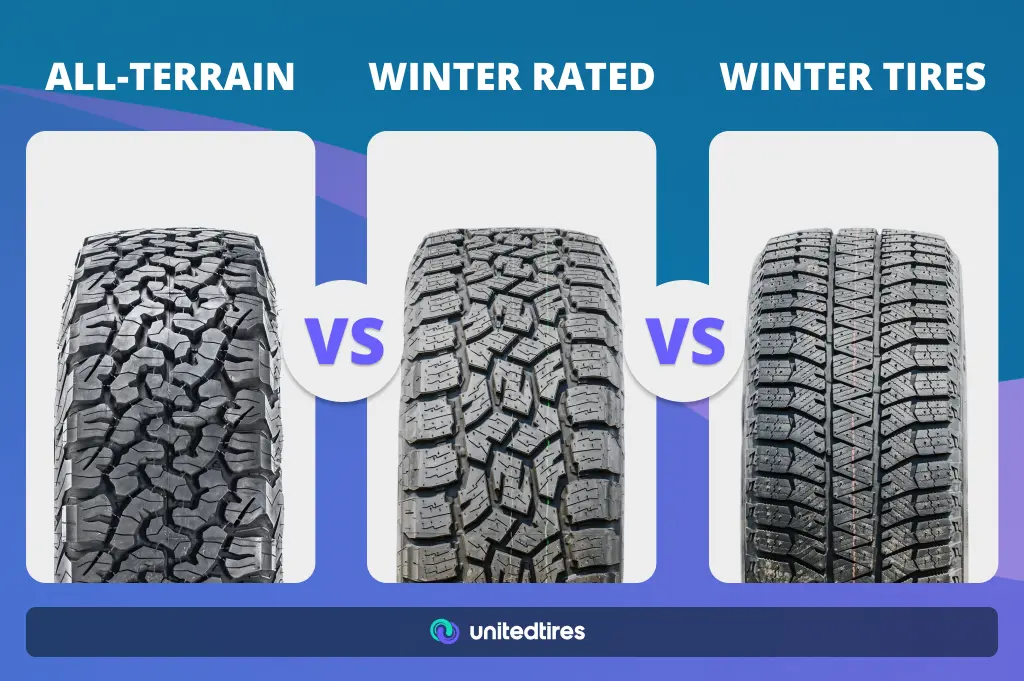
If you live somewhere with harsh winters, it’s good to understand how AT tires compare to their specialist winter counterparts. In short, winter/snow tires are the best for use in winter conditions. In second place are winter-rated tires, and in third are all-terrain tires. The main difference is the specialization of the tires and rubber compounds which each type of tire is made from.
All-terrain tires
All-terrain tires will provide you with sufficient grip and performance on snowy and icy roads. However, in temperatures colder than 44-50F, the tire’s performance may suffer, as the rubber compounds are often designed for warmer weather use. Braking tests on snowy surfaces at 40 mph showed that AT tires need 56 meters to stop, considerably longer than specialist winter tires. However, these tires work best in light snow, so if you live somewhere with milder winters and the roads in your city are kept fairly clear, AT tires will provide you with sufficient handling. One advantage of AT tires is that you won’t have to change them when spring comes, as is necessary with winter tires.
Winter-rated tires
Winter-rated AT tires have rubber compounds more suitable for winter use. Their performance is almost as good as that of the winter tires. However, they offer only mediocre performance on snowy and dry surfaces. Braking tests showed that these tires need 39 meters to stop completely. With AT tires, even those rated for winter use, you’ll compromise on traction in winter and summer, making them most useful for people in temperate climates where temperatures rarely drop below 32F.
Winter tires
Winter tires will provide you with excellent performance in snowy and icy conditions. They remain pliable in extremely cold temperatures. However, once the weather becomes warmer, the tires’ performance will suffer, as they’re not designed for warmer conditions. This means you have to change your tires twice a year.
All-terrain vs. mud-terrain tires
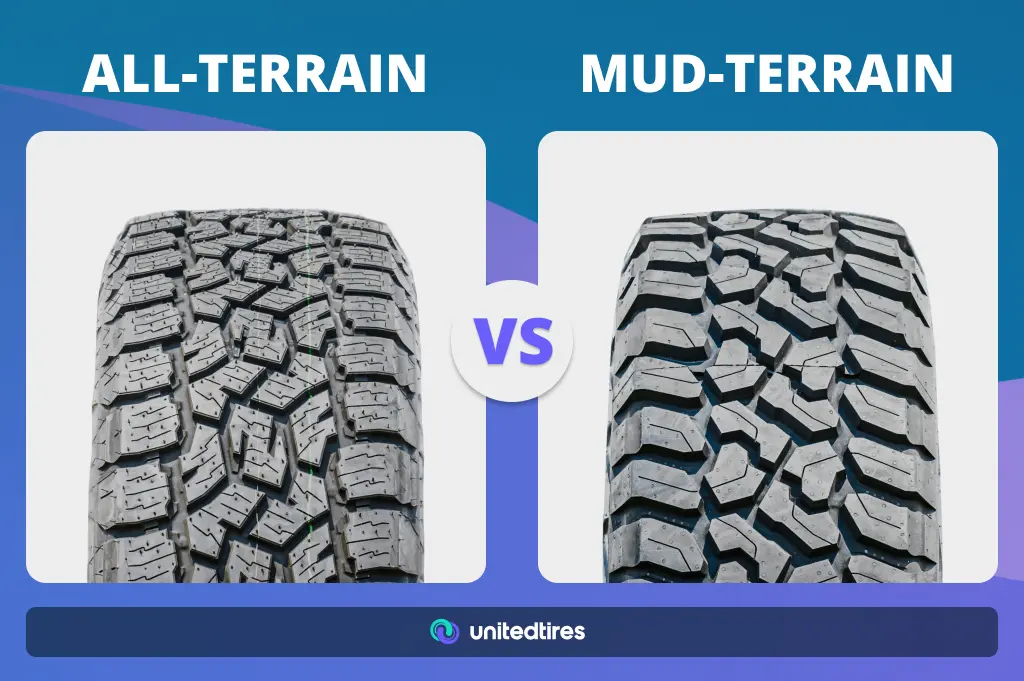
As their name suggests, mud-terrain tires are designed to work well in harsh, muddy, and rocky settings. However, with this level of specialization, you give up a lot when it comes to highway and road driving. AT tires are the compromise between ultra-rugged mud-terrain and smooth highway tires.
All-terrain
Compared to a mud-terrain tire, AT tires are less agile and nimble on rocky surfaces and may struggle in really harsh, muddy, or rocky conditions. But when it comes to highway driving, they are noticeably more comfortable and have a much quieter ride than their mud-terrain counterparts. Along with this improved highway performance comes greater fuel economy due to lower rolling resistance.
Mud-terrain
Mud-terrain tires are extremely heavy-duty with an open tread pattern that grips onto anything and will get you out of tough situations when off-roading. This tread design also “self-cleans,” allowing the tire to continuously grip onto treacherous surfaces. Additionally, its construction prevents punctures, especially at lower tire pressures.
All this is ideal for extreme off-roading, but mud terrain tires don’t stack up well against AT tires when it comes to highway driving. They are much louder and prone to vibration on paved roads, which makes for an uncomfortable ride. Ideally, you’ll only use mud-terrain tires on short highway drives, taking you into the wilderness, and then remove them for regular day-to-day driving.
Should I go all-terrain?
Hopefully, now you have all the information you need to choose your next set of tires. In short, all-terrains will be your best choice if you drive equally on paved roads and off-road surfaces.
When choosing the type of tires for your car, their purpose is the most important thing to consider. If you drive more on streets and highways and only go off-road for minimal periods of time, consider touring tires. And if you drive more off-road and hardly go on the streets at all, consider off-road, mud-terrain, or cheap SUV tires. As well as where you’ll be driving, there are several other factors to consider when buying tires.
Remember that if you want to go all-terrain, you may need to upgrade your vehicle to fit these tires. Light trucks, pickups, and SUVs should have the correct size wheels, but if you own a standard car, you may need new wheels and suspension parts so your car performs at its best with AT tires. When purchasing new tires, you might want to consider choosing a brand specializing in off-road tires, such as Fuel.
TOP-5 all-terrain tire brands
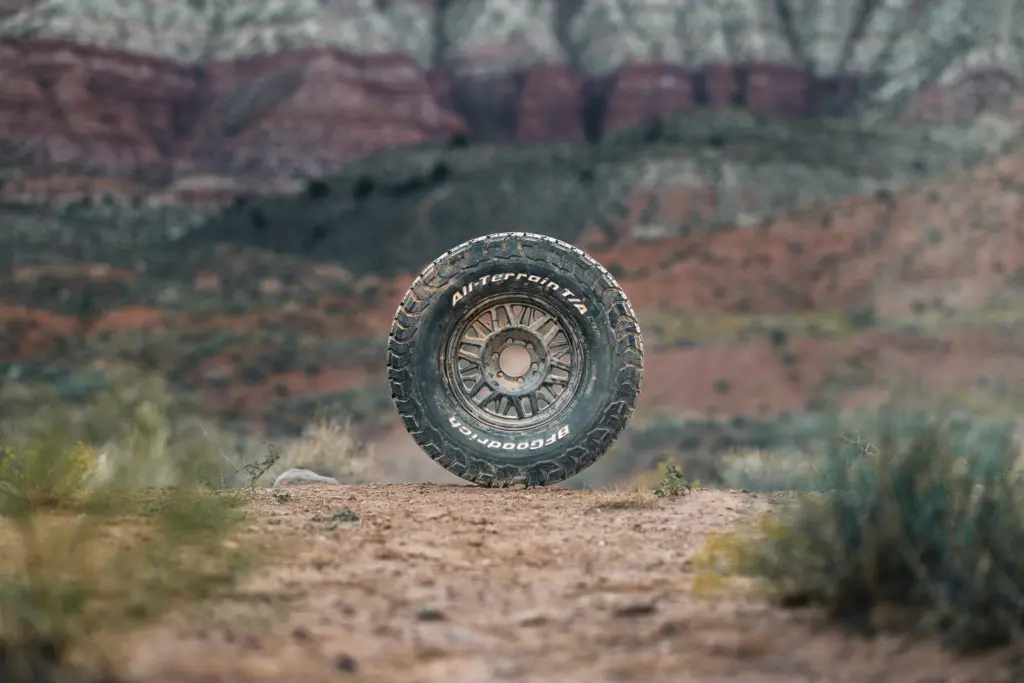
Our top picks for the best all-terrain tire manufacturers are:
- BFGoodrich
- Cooper Tire & Rubber Company
- Toyo Tires
- Dick Cepek
- Goodyear Tire & Rubber Company
BFGoodrich
BFGoodrich is an American tire maker that was founded in 1870 and is now owned by the tire giant Michelin. Many major innovations have come from this stalwart of the tire world, including the world’s first run-flat tires and, most importantly, the first-ever all-terrain tire. In 1976, they created the Radial All-Terrain T/A, which has been followed by the highly popular All-Terrain T/A KO tire and, today, the KO2.
Cooper Tire & Rubber Company
Cooper Tire & Rubber Company was founded in Akron, Ohio, in 1915 and remained an independent company until 2021, when it was acquired by Goodyear. Their all-terrain tires go under the Discoverer name and offer a great combination of quality, durability, and value.
Toyo Tires
Toyo Tires is a Japanese-owned tire manufacturer that has been making tires in the US since 1966. Their all-terrain offering goes under the Open Country branding and is known for durability and solid all-season performance.
Dick Cepek
Dick Cepek Tires and Wheels was founded in 1958, specializing in tires for the adventurous driver. In 2022, they were taken over by Mickey Thompson Tires, so you can find their high-quality extreme tires under the Mickey Thompson brand now. The most well-known is the Baja Legend EXP, which is known for its superior performance and great handling characteristics.
Goodyear Tire & Rubber Company
The Goodyear Tire & Rubber Company started in Akron, Ohio, in 1898 and is known for its quality American tires. This company has been part of tiremaking history, with its founder, Charles Goodyear, inventing the vulcanization process. Before all-terrain tires were even considered, Goodyear invented the first off-road tire, the Rut-proof, in 1921. Today, they offer a wide range of all-terrain tires, including the Wrangler AT range. These tires present some of Goodyear’s many innovations—such as self-cleaning treads and special rubber compounds.
Frequently Asked Questions
What are all-terrain tires best for?
All-terrain tires are best for drivers who split their time between paved roads and more rugged, off-road environments. These tires are designed to grip dirt and gravel roads and pavement, making them ideal for everything from daily commutes to adventurous weekend outings in the wilderness. The open-tread design also allows for improved traction in muddy or snowy conditions while maintaining enough smoothness for a comfortable highway ride. So, if you’re someone who enjoys a spontaneous off-road trip but needs reliability for everyday driving, all-terrain tires offer a balanced solution without having to switch between different sets of tires.
What are the disadvantages of all-terrain tires?
All-terrain tires are an excellent, versatile choice but have some disadvantages. As they are designed to handle two very different types of conditions (off-road conditions and regular roads), they won’t be perfect in either setting.
On paved roads, all-terrain tires often produce more road noise and offer a rougher ride than dedicated road tires. Due to their heavier tread patterns, they can also have slightly lower fuel efficiency.
While off-roading, they perform well in light off-road conditions but are unlikely to give the same level of grip or durability in more extreme off-road environments as specialized off-road tires. Essentially, they are a compromise if your driving is heavily skewed towards one type of terrain or the other.
Do I really need all-terrain tires?
You might need all-terrain tires if you drive equally on rough terrain and paved roads and highways and don’t want to change your tires. Basically, deciding whether you need all-terrain tires depends on your driving habits and the conditions you regularly encounter. If you frequently travel off-road or on mixed surfaces like gravel, dirt roads, and occasional mud, as well as regular driving on paved roads and highways, all-terrain tires could be a great investment. They provide the versatility to handle various conditions with confidence. But if most of your driving is on paved roads or off-road, you might want to consider tires specifically suited to that single type of driving.
Share the Knowledge
